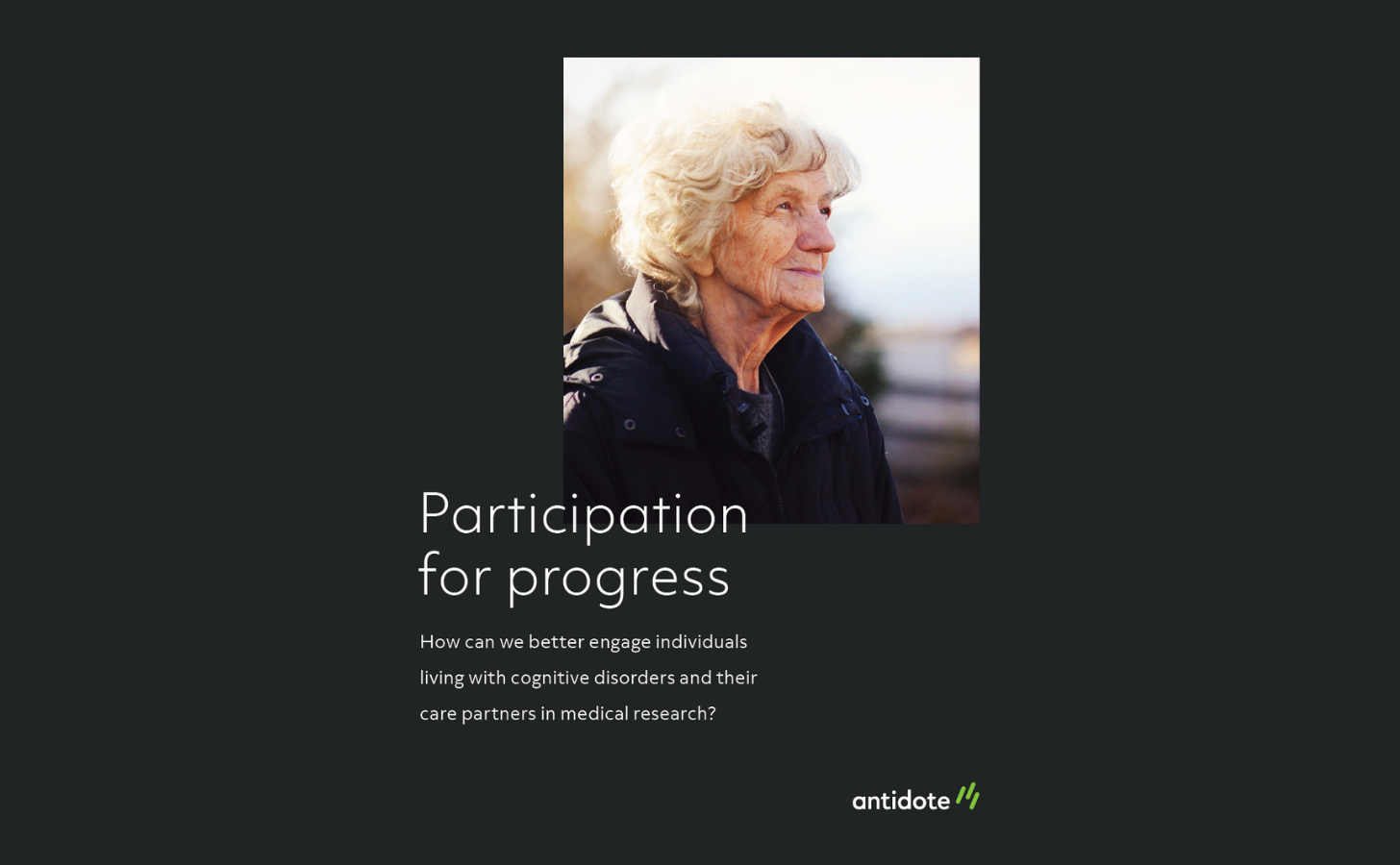Clinical trials are the leading source of medical breakthroughs that can improve, extend or save lives. While clinical trials are critically important, patient participation remains low. In fact, we know that as many as 80% of clinical trials are delayed or closed as a result of low patient recruitment.
Fortunately, efforts are underway to learn more about what encourages or what inhibits patients and their caregivers when it comes to participating in a clinical trial—and the results may surprise you.
Lack of awareness, rather than lack of interest, is the most significant factor preventing patients from participating in clinical trials and research studies.
We recently partnered with Antidote and the BrightFocus Foundation to survey more than 650 patients living with cognitive disorders such as Alzheimer’s Disease, Parkinson’s and dementia as well as their care partners. The survey sought to better understand patients’ diagnosis experiences as well as the reasons why patients do or do not take part in clinical research—with the ultimate goal of recognizing opportunities to improve patient and caregiver engagement around research participation.
Key learnings of the study, highlighted in the new whitepaper “Participation for Progress,” include:
1. Awareness is key
Lack of awareness, rather than lack of interest, is the most significant factor preventing patients from participating in clinical trials and research studies.

2. Patients and caregivers are not typically learning about clinical research opportunities from their primary care providers.
Less than 3% of total respondents reported that their primary care providers had initiated a conversation with them about clinical trials.
3. Finding a cure is a key motivator
Finding a cure is the strongest motivator for patients (and their caregivers) to participate in trials.
4. Travel & changing doctors are biggest barriers
Proximity to local study sites and concern about changing doctors are the greatest perceived barriers to clinical trial participation.
Gaining a full understanding of how and why patients with cognitive disorders and their care partners choose to take part in clinical trials is critical as researchers continue to identify and evaluate potential new treatments and therapies.
To learn more, download the whitepaper.


